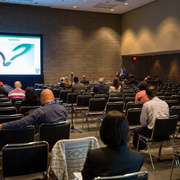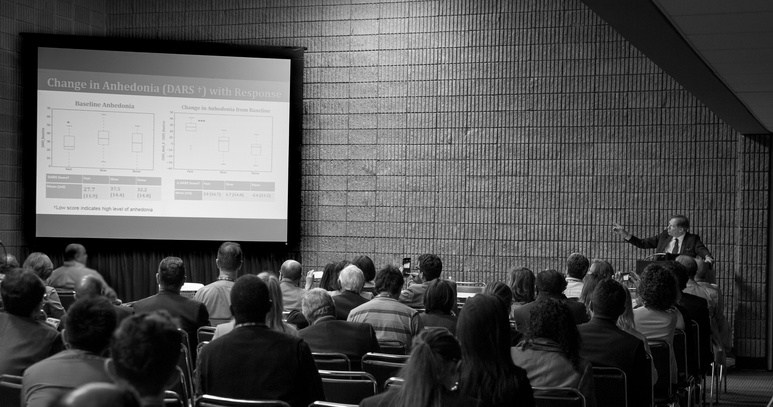
Choose a channel
Check out the different Progress in Mind content channels.

Progress in Mind







Psychiatry is evolving as a profession. The number of patients with mental disorders in all life-cycle phases, from childhood to old age, is increasing all over the world and is responsible for enormous social and economic loss. The expectations for psychiatry as a profession are getting higher.
However, such complex and heterogeneous psychiatric disorders still cannot be classified and diagnosed precisely by diagnostic criteria such as DSM and ICD. Professor Yamawaki encourages us to establish objective diagnosis by utilizing findings of recent brain science research, and develop innovative treatments. If not, the expectation towards psychiatry may turn into disappointment.
The field of psychiatry is developing in a number of areas. Development of contemporary cognitive, affective and social neuroscience using neuroimaging are especially prominent. Molecular target data are being accumulated using genome and epigenome research and proteomics; however, issues such as reproducibility have arisen. In order to elucidate the pathophysiology of complex psychiatric disorders with variant, heterogeneous conditions, and to establish objective diagnosis, we need large cohort studies which have incorporated brain function and biomarker measurements, as well as clinical evaluation.
While there are many hurdles to achieving breakthroughs in our field, the theme of the 30th CINP congress is one to strive for - Innovation Integrated with Neuroscience for Mental Health.
The CINP have made active efforts to accelerate the development of biomarker and objective diagnosis by precompetitive collaboration of public and private institutions - a collaboration of basic and clinical academia, pharmaceutical companies and regulatory agencies.
By applying every brain science approach such as genomics, proteomics and neuroimaging and data analysis techniques, he is confident that we will see breakthroughs in the future.
The full video interview with Professor Yamawaki will be posted on www.progress.im soon. Also, look out for our interview with Professor John Krystal, CINP President Elect, in which we hear about future plans for the CINP as he takes the position of CINP president
Sign up for our newsletter and we will keep you posted.
At the 30th international CINP congress in Seoul, Korea, we were privileged to speak with Professor Shigeto Yamawaki, President of the CINP, about changes and developments in the field and the valu





People with schizophrenia aged 55 years and above are about to become 25% of the total population with the disease. Yet only 1% of the schizophrenia research budget relates to older adults. So it is not surprising that much about the natural history of schizophrenia in this group remains unclear. To what extent is it really a quiescent disease at this stage in life? How does cognitive function change with time?
Data from New York City, presented by Carl Cohen (SUNY Downstate Medical Center, Brooklyn, New York, USA) casts light on what is happening in people with schizophrenia in mid to late life (55 years plus) and living in the community.
The starting point was a group of 250 who had developed schizophrenia before the age of 45. They were outpatients and did not have moderate or severe cognitive deficits or complicating factors such as a history of head trauma at baseline. Those living independently represented 39% of the sample: the others were in some form of supported residence. They were matched at baseline with 113 controls matched for age and income.
The cognition situation in older people is dynamic: some improve, others decline
At the start of the study, people with schizophrenia had a mean Dementia Rating Scale (DRS) score of 128, not far below the score of 138 among controls, but perhaps indicative of mild cognitive impairment.
As expected, there was considerable loss to follow-up, not least because of death. But those lost were similar to those who could be re-contacted. After a median follow-up of 4.5 years, the mean score of 127 among 104 people with schizophrenia showed no change. But this did not mean that no px had changed. While 59% showed essentially the same score at follow-up, 21% had experienced a decline in cognition – defined as a fall of 0.5 SD per year – and 19% had shown improvement -- defined as an increase in score of 0.5 SD per year. So the cognition the situation is actually quite dynamic.
On multivariate analysis, those whose cognition scores improved had had poorer scores at baseline. So there may be some regression to the mean. Though pxs living independently had better cognition at baseline, those living in supported housing were less likely to show decline over the period of follow-up, perhaps because of greater access to services.
Although an estimated 8% of the human genome is of retroviral origin, acquired during millions of years of primate evolution, most of it is now junk. It has been inactivated by mutation or epigenetic processes such as methylation. But what if some of it is capable of re-activation, perhaps by infections during embryonic development?
Though he repeatedly acknowledged that the idea is highly speculative, Awais Aftab (Case Western Reserve University, Cleveland, Ohio, USA) presented the argument that Human Endogenous Retroviruses (HERVS), particularly the HERV-W family, may play a malign role in the causation of schizophrenia.
There is evidence that HERV-W nucleotide sequences are more common in those affected with schizophrenia than in controls. The HERV-W envelope protein seems to activate production of inflammatory cytokines, which might contribute to the inflammation story in schizophrenia. And infections linked to schizophrenia can activate HERV-W elements, perhaps through demethylation of relevant genes.
In combination with genetic predisposition and environmental factors, archaeological remnants of millennia-old viral RNA could set the developing brain on the path towards schizophrenia and so provide a missing link in causation, at least in some patients. It is a suggestion worth considering.